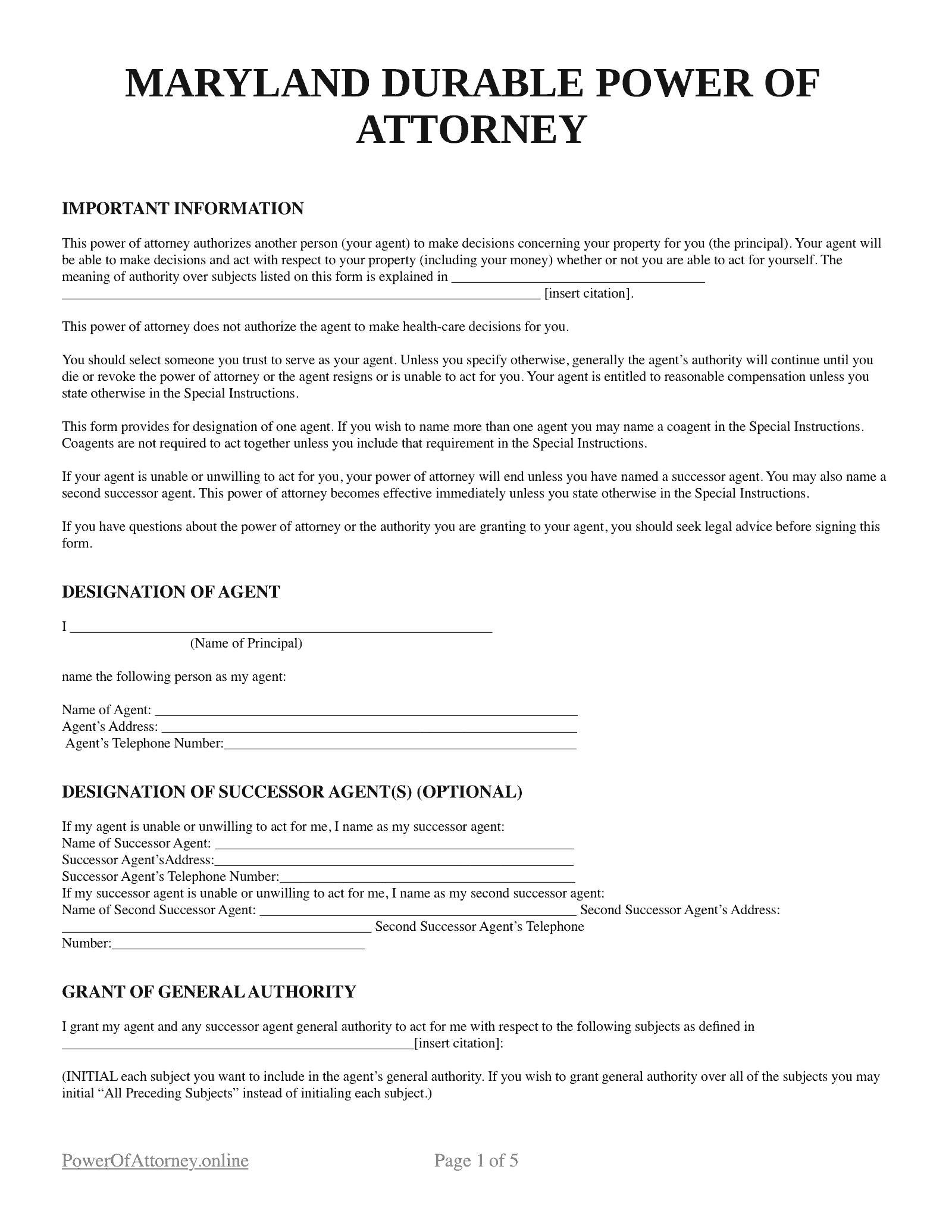Free Maryland Power of Attorney Forms
A power of attorney (POA) is a legal document that allows one person to act on behalf of another. The person who acts in the authority of another is called an agent or attorney-in-fact. The principal is the one who grants the authority.
Armed with the POA, an agent can perform simple tasks following the principal’s wishes, such as signing documents or issuing checks. The agent may also be given complex responsibilities, such as managing properties, selling real estate, completing financial transactions, and making investments.
Another type of POA, namely a medical power of attorney, gives power to an agent to decide on medications, surgery, and other health-related issues. In cases of incapacity, the agent may also make end-of-life decisions for the principal.

Maryland Power of Attorney By Type
The principal decides what power an agent may possess through their POA. A limited form only covers one or a few specific tasks. The principal may also grant broad authority through a general POA.
Here are the types of POAs and their functions:
- Financial Power of Attorney - This grants an agent authority to make financial transactions on behalf of the principal, including properties and investments.
- Medical Power of Attorney - This allows an agent to make healthcare-related decisions for the principal. The form is required when the patient is incapacitated and unable to make decisions for themselves. In this case, the healthcare POA must be durable.
- Durable Power of Attorney - A POA is durable when the document explicitly states that the authority is not impacted even when the principal is declared incompetent. With a durable POA, the agent continues to decide on the outlined matters for the principal.
How To Get a Power of Attorney in Maryland
To get a POA in Maryland, you can download a printable form online. You must personalize the template and list down the specific responsibilities of your agent. In some cases, it may be worthwhile to have a lawyer look over the finished document.
Maryland Power of Attorney Laws
Here are some of the provisions under the Maryland Statutes on the Article on Estates and Trusts:
- Section 17-101 - Power of attorney is defined as “a writing or other record that grants authority to an agent to act in the place of the principal, whether or not the term ‘power of attorney’ is used.”
- Section 17-102 - This explains that the agent is not required to disclose transactions, disbursements, and receipts made on behalf of the principal and as part of their responsibilities unless stated in the document.
- Section 17-103 - A POA can be reviewed and revoked through the request of the following: the principal or agent, guardian or conservator, another fiduciary acting for the principal, a healthcare proxy, the principal’s spouse, parent or descendant, and a principal’s presumptive heir, and more.
- Section 17-104 - This section states: “A person may not require an additional or different form of power of attorney for any authority granted in a statutory form power of attorney.”
FAQs About Maryland Power of Attorney Forms
Different states have different statutes regarding POAs. For example, Maryland has outlined specific requirements for witnesses and the presence of a notary public upon the signing of certain forms.
Here are answers to some of the most common questions about Maryland POAs: